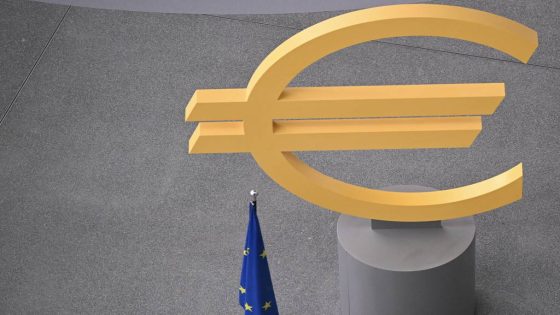BERLIN â The European Unionâs lending arm and NATOâs venture capital fund will share information and work more closely together to support small and midsized companies across the continent that focus on security and defense, the organizations announced Tuesday.
Under a memorandum of understanding, signed July 2, the European Investment Fund and the NATO Innovation Fund will set expectations for closer cooperation well into the future, including sharing know-how and âraising awareness about potential investments,â according to an information sheet the European Investment Bank provided to Defense News.
The document also noted the two funds âwill also exchange information with the European Commission,â when relevant.
However, the memorandum âdoes not refer to joint investments,â a European Investment Bank spokesperson told Defense News. Both parties will continue to fund projects separately and for their respective member states â 24 countries in the NATO group and 28 in the EU organization.
Founded by the alliance in 2023, the NATO Innovation Fund is an ostensibly stand-alone organization backed by two dozen member states. All NIF countries are located in Europe, but four â Turkey, Norway, Iceland and the U.K. â are not EU members.
The fund has up to â¬1 billion (U.S. $1.1 billion) to disburse, and it focuses on âdeep tech,â which includes artificial intelligence, quantum computing and robotics. The NIFâs relationship with NATO as a whole helps the fundâs stakeholders find potential buyers of innovations among alliance members.
The European Investment Bank, jointly owned by EU member states, supports businesses on the continent with several financial products, including loans. Through its European Investment Fund, the bank claims to have helped 2 million European small businesses access capital over the past 30 years. The fund aims to generate about â¬145 billion in investments for businesses, according to its website.
âFinancing for Europeâs security and defense industry is among the EIB groupâs strategic priorities,â the bank said in a news release ahead of Tuesdayâs signing. Some prioritized sectors included reconnaissance, spectrum control, cybersecurity, infrastructure and mobility, the bank added.
â[Partnering with] the NATO Innovation Fund affirms the EIB Groupâs commitment to step up its support for Europeâs security and defense industry,â said Robert De Groot, EIBâs vice president.
He added that recent revisions to the bankâs lending policies to allow for more security-oriented companies to receive European funding are already bearing fruit. âA few weeks ago, we announced the financing of dual-use satellites in Poland and the dual-use upgrade and expansion of a Danish port,â he said.
Russiaâs attack on Ukraine has driven the EU to flex its economic muscle in the military tech space. Key institutions, including the EIB, have revised lending rules and announced fresh strategic priorities to facilitate money going to companies that work on primarily defense-related projects.
Not all EU states are NATO members, although Sweden and Finland recently joined the alliance. Still, the bloc and alliance communicate regularly to discuss common interests. Despite the EU having its collective defense mechanism, the blocâs treaty specifies NATO as the primary means for collective self-defense for those countries who are members in both organizations.
Linus Höller is a Europe correspondent for Defense News. He covers international security and military developments across the continent. Linus holds a degree in journalism, political science and international studies, and is currently pursuing a masterâs in nonproliferation and terrorism studies.
Source Agencies




